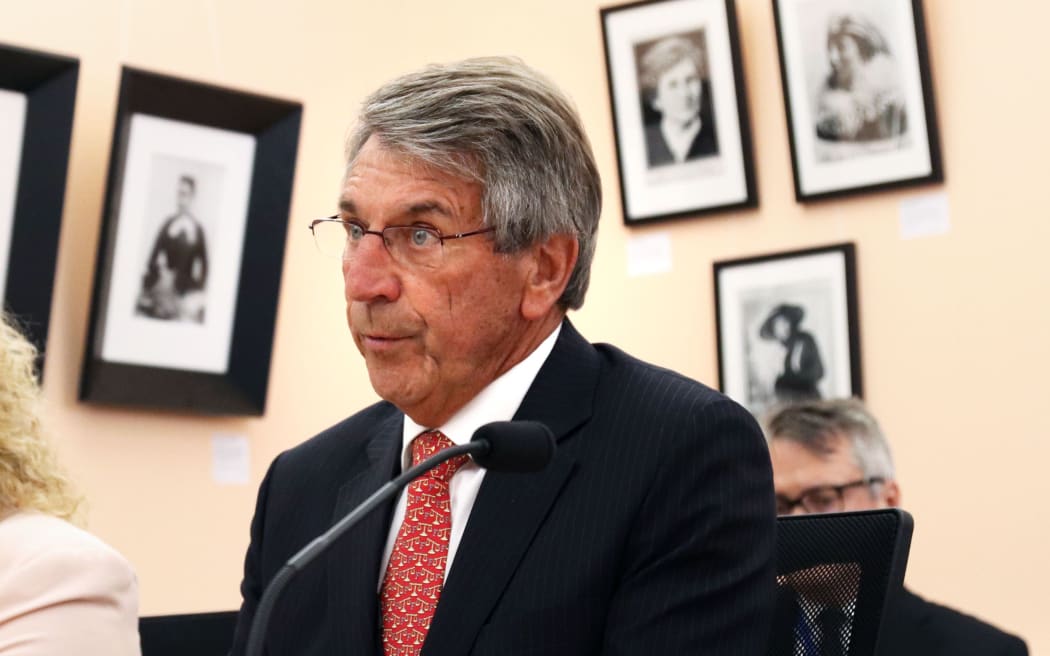When it came to power this government pledged to be the most open and transparent one ever; now an investigation by the chief ombudsman's office will effectively show whether or not that's true.
Judge Peter Boshier's probe will look at whether the Official information Act is being weaponised to delay or stifle the flow of information with some government agencies routinely leaving it to the last possible moment to respond.
He will also be delving into the role ministers play in process and whether there is any evidence of "interference".
The investigation is inter-agency, not at ministerial level, however, several issues were starting to emerge over how long it was taking for information requests to be answered, not just when lodged by journalists but also by members of the public.
Journalists were finding answers took so long to be supplied "it's more relevant to the history books than the headlines", Boshier said.
Leadership came from the top, especially from ministers and chief executives. Agencies had become accustomed to asking ministers to supply responses which was worrying for two reasons - it caused delays and raised the possibility of ministerial interference.
He said he was unable to say if ministers were actually stopping or influencing the flow of information.
"There are a number of reasons we want to go in, lift up a rock and have a look and see what agencies are doing to a request from the time they receive it to the time they answer it and if there's any unease about the very issue of interference I think we'll find it."

Judge Peter Boshier is keen to "lift up a rock" and see what is going on with OIA requests. Photo: Getty Images
The law held if information was reasonably available, it should be released at the earliest opportunity but now there was a perception that delays were "more profound than they used to be".
Often information was released on the 20th day or, adding to the frustration of requesters, it was transferred to another agency on that day.
"You'll see that I am uneasy about what the reasons for the delay are and I need to find out what's going on."
Without an inquiry the perception would linger that staff were trying to cover up something embarrassing or negative for their department or minister, he said.
"Transparency is the thing that leads to trust and we found that during lockdown, that the more the government shared, the more people were prepared to do things, which otherwise were quite coercive.
"But there'll begin to be a feeling of distrust, if there is a delay, and it might be thought to be manipulating for a reason. If that is going to be a perception it's not going to increase but rather diminish trust."
The probe on OIAs was not something affecting only the media and was something that affected everyone, Boshier said. It was important at local body level with people interested to know why a council was doing a project and what it was spending money on.
OIA requests also affected all the Crown agencies covering such areas as their expenditure, the letting of contracts or the choice of a medicine.
"Those are all things for which this act engenders accountability and transparency."
Boshier hoped that if good systems could be put in place and trained staff were available, information could be released as quickly as possible or the decision made promptly to let another ministry handle a request.
PM defends handling of OIA requests
At her post-Cabinet media briefing, Prime Minister Jacinda Ardern said the government was meeting the bulk of requests within the allowed timeframe.
There had been a large increase in the number of requests, she said.
"The number of requests that are received by agencies has doubled in the past six years - in a six-month period we're talking 26,000-odd requests and they come from a range of individuals, not just for instance journalists.
"Ninety-seven percent of that large number is still responded to within those timeframes that are set out in the law... The average time is 12 and a half days."
Ardern said the government was working hard to respond "in a timely way".
"One piece of context that I think is useful, 6.4 percent of requests were refused but 18 percent of those were refused because the information doesn't even exist ... sometimes they are, frankly, conspiracy theories that we get quite a few requests over."

